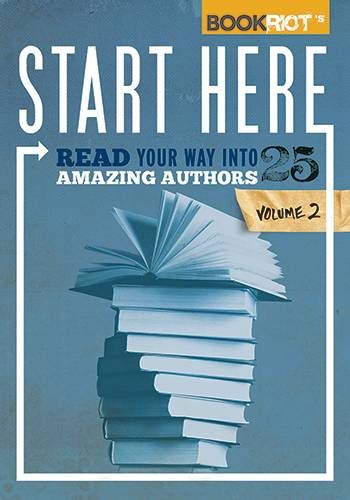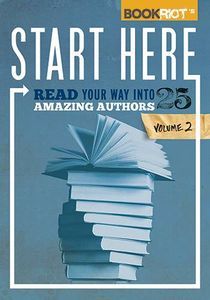
START HERE, Vol. 2 Write-In Giveaway: Finalist #4

_________________________
Steven Johnson
Admit it! There’s an entire section of the book store that might as well not even exist for you! Dostoevsky and Joyce might be intimidating but what really makes you sweat is the non-fiction section. I think this is due in part to how difficult it is to write nonfiction that appeals to a wide audience. But when people nail it (Jared Diamond, James Gleick, and Malcolm Gladwell to name a few) the results are wonderful, and Steven Johnson has been nailing it for the last 15 years.
One of Johnson’s greatest skills is his ability to explain scientific breakthroughs and new technologies by examining both their precursors and their future potential. For example, in Future Perfect Johnson has an excellent section on Kickstarter whose roots he traces to patronage systems and the establishment of government rewards to solve problems (such as the Longitude Prize). Johnson then discusses how ideas like Kickstarter could be used to address the disconnect people feel between paying taxes and the services the government provides. If people could allocate a portion of their taxes to a government program of their choice (like Kickstarter backers selecting which projects to back) they might feel better about paying them.
To help you make the leap from novels to Johnson’s nonfiction we’ll start with a book that is almost indistinguishable from a great thriller.
Ghost Map: The Story of London’s Most Terrifying Epidemic–and How It Changed Science, Cities, and the Modern World
We’re starting off with a bang as this book is a page turner on par with the best thrillers and mystery novels. Ghost Map details the 1854 cholera epidemic in London and is a fascinating example of the struggle between science and superstition. As the outbreak continues to spread and more and more people become afflicted, a doctor named John Snow develops a theory that cholera is a waterborne disease, contradicting the prevailing opinion of the time that cholera is caused by poison in the atmosphere. Using his knowledge of the area (the outbreak occurs in Snow’s neighborhood) he locates the source of the epidemic, convinces the authorities of his theory, and changes the way the modern world investigates epidemics.
Now that you’ve read the case study you are ready for one of Johnson’s main themes: where do good ideas like Snow’s concept of disease come from and how can they be fostered?
Where Good Ideas Come From: The Natural History of Innovation
Ever wanted to take a reading sabbatical but couldn’t find a way to justify it? Well, now thanks to Johnson you have science backing you up! Reading sabbaticals are just one of the many suggestions Johnson provides on how to cultivate creativity in this fascinating book that examines how innovation has occurred over history. Johnson dispels the myth of the lone scientist slaving in the laboratory and shows how networks of people and ideas are critical for innovation. The key “is not to sit around in glorious isolation and try to think big thoughts. The trick is to get more parts on the table”. After reading this you should have plenty of tricks up your sleeve.
Okay, you’re back from your reading sabbatical where you did nothing but think deep thoughts for a week. So you sit down and start catching up on Game of Thrones and before you know it you’ve just wasted an entire Saturday morning. Wasted? Mr. Johnson would beg to disagree.
Everything Bad is Good For You: How Today’s Popular Culture is Actually Making Us Smarter
Do you feel guilty for spending too much time in front of the TV or trying to level up in Candy Crush? Worry no more! The idea of this book is that as TV shows and video games increase in complexity people are getting smarter! For example think about Gilligan’s Island. Each episode consisted of mostly one plot (here’s a new way for us to try and get off the island), had no more than seven or so one-dimensional characters to keep track of (no need for names, just stereotypes!), and at the end of each episode the status quo was mostly reset. Compare that to an episode of Lost or The Wire, which have upwards of 50 characters that matter and subplots upon subplots upon subplots. According to Johnson, having to keep track of all this complexity actually improves our mental capacity. So the next time you settle in for a Buffy the Vampire Slayer marathon, don’t worry about it! It’s good for you!














